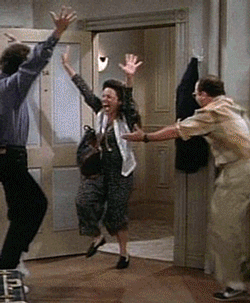Not long ago, I monitored cars making right turns at a stop sign in Albany, to see just how well they stopped. It seems like 'stop' has become a euphemism these days for "do what you can get away with." The angle of the turn-off to the street is somewhat less than 90°, meaning it would be inviting to drivers to get through it quickly and continue on their way. From th

e train station across the street, I watched for about 45 minutes, counting 66 cars in the categories I used, while throwing out any other instances where another car was coming and they were compelled to stop.
I hearkened back to when I had a driving test for my license renewal when I was 27, failing the test because I didn’t come to an actual and bona fide complete stop that wouldn't offend the ants crossing in front of me. By the criteria I was graded on in my driving test, about 98% of the drivers I saw on this day would have failed the test and had to come back a month later to retake it. So, I believe there are extremes both ways. I'm not one to say that a person should be absolutely mannequin in order to qualify as a stop.
I put the cars I was monitoring into three categories, with the following results:
A. Stopping/quick halt — 44%
B. Rolling with a pause — 26%
C. Rolling with no pause — 30%
Among group A, this consisted of people who were making a serious effort to stop, even if they might not have been at a standstill. Less than half of the people did even this.
Group B is those who were in a hurry, but still made a token gesture with a little curtsy, though at closer inspection it was nowhere near a stop. This made up one-fourth of the people.
Group C didn’t even bother. They just rolled right on through the stop sign like it was a matador. Apparently to them, stopping is an inconvenience that they’re too good for. This comprised one-third of the people.
Group A was a combination of letter of the law and spirit of the law obeyers. They adhered to the basic principle of stopping. Group B was those who were trying to make it appear to others like they were following the rules, but they really weren’t. And Group C was those who basically didn’t give a flying fajita, completely thumbing their noses at the system. If we were to hand out constellation prizes to all of these people based on their attitudes, we might assign to the first group the sun, the second group the moon, and the third group the stars. This survey was only 84% scientific, with a margin of error of 37%. If it had been conducted under laboratory conditions, the drivers might have figured it out.
CORNERING THE MARKET
When you try to cut corners, you think you’re getting away with something and saving time. But instead, you’re validating a fallacy for yourself that circumventing is a solution, fostering future behavior through habit-making. What happens when people start cutting corners is that they often keep chipping away more to see whatever they can get away with. They gradually peel more and more off until the original

path is indiscernable, the initial purpose thus being marginalized. Their idea may become: If I don’t have to generate a full arc when making a left turn, might as well milk it for all it’s worth and just cut through the middle lane.
Drivers look for shortcuts in other ways as well. In city driving, at speeds of around 35 mph, they believe that they will arrive at their destination quicker if they stay about 10-20 feet behind the car in front of them. In reality, even if you’re planning on passing the car in front of you, being 10-20 feet behind vs. behing 40 feet behind provides no advantage. What driving 10-20 feet behind a car does is create a dangerous situation to the car that’s being tailgated because it leaves almost no room for error. If you’re driving behind me that close, I’m going to gradually decrease my speed by a few miles per hour so that your reaction time is increased in case I have to stop suddenly. I was already going a few miles an hour over the speed limit, so there's no justifiable reason that I should go faster or pull off the road to cater to your haste unless you have a siren on top. Get in line, wait your turn, or just get up a half hour earlier in the morning. Sheesh...
What tailgating also creates is more traffic jams, and thus more stoppages. If cars would distance themselves a little more, there would be fewer stoppages. Traffic jams are typically bottlenecks, when too much is condensed in one area, thus becoming counterproductive to the original intent. In trying to save a few extra seconds, we produce delays that can be much longer. It's just like how pouring liquid from a full bottle works better if you tilt it somewhat sideways rather than straight downward. As much as it seems like a psychological benefit to go as far forward as you can when the roads are congested, there’s really no way to play leapfrog with yourself, as much as we try to. Buffers actually do serve a purpose. Likewise, constantly changing lanes in dense traffic only gives you temporary respite until the other lanes catch up again. The grass always looks greener in the other lane, but it generally isn't the case.
CHRONIC LIVINGHow can we apply all this to life? What shortcuts do you attempt? Do we skip exercising because it represents an extra 20 minutes in our day that we can't seem to devote? Do we get an hour less sleep than we need each night so that we can squeeze more into our waking hours? Do we frequent Jack in the Box or Burger King because of their convenience? I did that once upon a time, but then my gallbladder filed a protest which was eventually upheld by the medical profession. I lost the case in a bitter dispute, finally relinquishing said gallbladder to science. My liver had appealed, citing potential emotional trauma if it were to take place, but alas, the court was unsympathetic.
Stephen R. Covey said this in reference to non-physical conditions: "[People ask] 'How do you do it? Teach me the techniques.' What they're really saying is, 'Give me some quick fix advice or solution that will relieve the pain in my own situation.' The more people are into quick fix and focus on the acute problems and pain, the more that very approach contributes to the underlying chronic condition."
People steal things, for one, because they think they’re coming out ahead in the deal, getting away with something supposedly gratis. It's a self-created lottery scheme. But if you’ve stolen something, is it really worth degrading yourself into believing that a short-term fix pays off in the long run? That only reinforces in you that being parasitic is a legitimate enterprise, and falsely says that taking away from the greater good affects only other people. And while we're spinning cliches, remember that what goes around comes back around and doesn't play favorites.
Cutting corners gives you the impression that you can procrastinate, not plan ahead, wait till the last minute, do what’s easy, put out very little effort, mail it all in, get something for nothing, and then just make up for whatever’s lacking later by fudging, rushing and improvising. It tells you that you can goof off for two weeks and then cram for a test and still get as much out of it. It tells you that sweeping dirt under the rug doesn’t hurt anything. It tells you that a continually lackluster effort is admirable. It tells you that going through the motions is sufficient. Well, cutting corners lies! It sells you a glittering package filled with synthetic dreams.
The old adage that you get what you pay for applies here. If all you invest is a shortcut effort, you end up developing a shortcut attitude until you’ve cut so many corners you don’t even know where the corners are any more, and so what you get are shortcut results. Do you want your life to be a shortcut? Is that the goal, or is it something else?
OUTPUT = INPUTUltimately, we get whatever we’re willing to be satisfied with. Society wants band-aid remedies, and so look what it gets. A heavy dose of transience, unfulfillment, heartache, disappointment... much of it the product of empty promises from the grandiose expectations of a flimsy house of cards. After buying something made of plastic, can you really be surprised when it doesn't last that long?
We each know individually what our best effort is. An ecclesiastical leader of mine in college named Al R. Young often made the comparison that when you do less than your best, it’s like you’re trying to play chess with yourself — pretending that you can outsmart that opponent and take his pieces, then expecting him to show amazement as if it wasn't all choreographed in the f

irst place. If we’re taking shortcuts with our efforts, then we’re shortchanging ourselves, losing out on chances to shape the maleable clay that we’ve been given. We should want our clay to have a distinctive look so that when it dries it will have something of our imprint on it and say something profound about us that others can use. We don't want it to say "I hurried and got it out of the way swiftly."
When involved in a creative project, the dilemma is that if it were easy, then anybody could do it and it wouldn't be as special or in as much demand. Sports analysts are constantly telling us that what separates the great players from the merely good players is their dedication, their work ethic, their inner drive. At the highest levels of athletics, success is not accidental. Those who succeed have been putting in countless hours in training and conditioning where most people don't see them, honing their skills and their discipline. We tend to assume that they just happened to be better than everyone else. In reality, they were willing to put more into it, and didn't search or settle for shortcuts.
If you can’t invest more than a 3-minute effort into the various aspects of your life, then you can’t realistically expect for them more than a microwave outcome. Sure, microwaving is quick, and it’s handy, but if it’s the rule instead of the exception, all you’ve got to show for it at the end of the day is a quick and handy life. On sale now for $19.99, while supplies last. Hurry, offer ends when? Oh, yeah… it ends soon. We ought to rather prefer those offers which are perpetual, taking the long way around... because unlike shortcuts, they return on their investment.
 eing people wearing pants and shirts just like mine. And all this time I thought it was because they had good taste.
eing people wearing pants and shirts just like mine. And all this time I thought it was because they had good taste. eing people wearing pants and shirts just like mine. And all this time I thought it was because they had good taste.
eing people wearing pants and shirts just like mine. And all this time I thought it was because they had good taste.






























